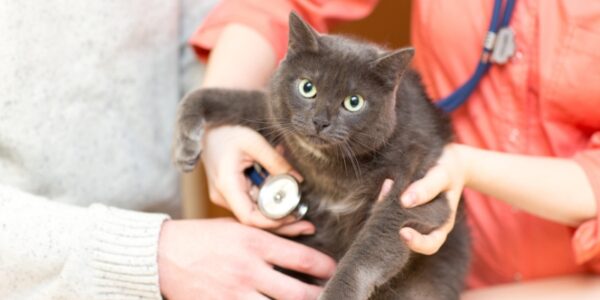To ensure your cat enjoys a long and healthy life, it’s essential that you bring them in for a yearly check-up with the vet, even if they seem perfectly healthy. Cats are masters when it comes to concealing signs of illness and pain from their owners, so your cat may have a health condition that you don’t know about. Happily, an experienced veterinarian can perform a comprehensive evaluation of your cat’s health during one of these check-up appointments and address any issues before they impact your pet’s quality of life.
The physical examination we offer is comprehensive and includes:
- Eye and ear examinations
- Rectal examination
- Dental examination
- Neurologic evaluation
- Cardiovascular evaluation
- Weight evaluation and nutrition counselling
- Coat and skin evaluation
- Abdominal palpation
- Urinary system evaluation
- Reproductive system evaluation
- Musculoskeletal evaluation
- Lung evaluation
- Behavioural counselling
Why do I need to bring my cat in for a yearly check-up?
Bringing your cat in for their annual examination helps to ensure that health conditions are diagnosed and addressed before they cause your pet serious discomfort. In many cases, early diagnosis means a better prognosis, a simpler treatment course, faster recovery and fewer vet bills. Yearly examinations are also the perfect time for you to ask the vet any questions you might have about your cat’s lifestyle or behavioural issues.
Senior cats
Senior cats over 7 years need to have their health monitored more closely than younger cats as at this age, health conditions tend to be more frequent and develop faster. For these reasons, we recommend bringing your senior cat in for a check-up once every six months. Learn more about some of the health conditions affecting our older feline friends.
Other Related Services
For more information on related services, please visit the pages below.
Kitten Vet ServicesAdult Cat Vet ServicesCat & Kitten Vaccinations




